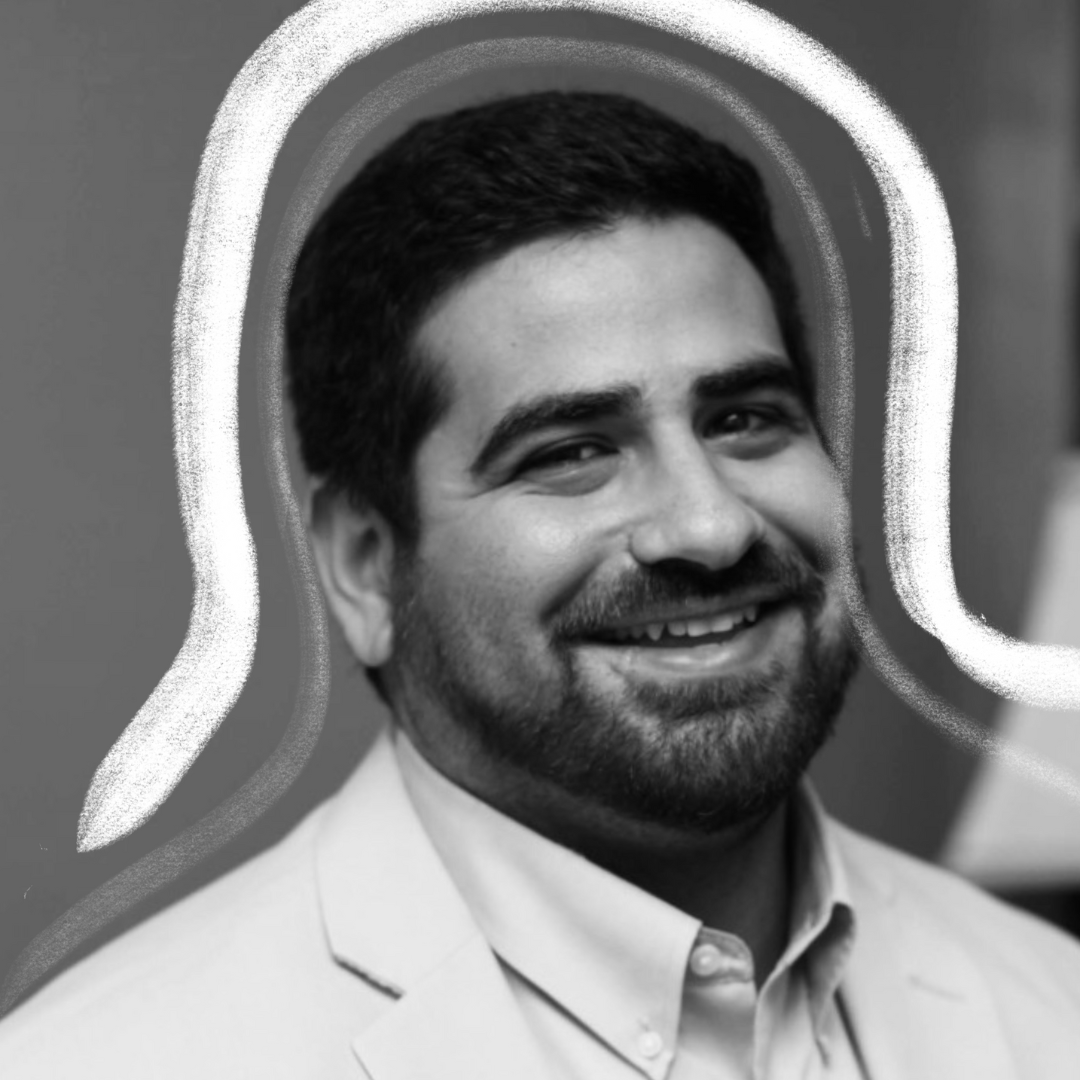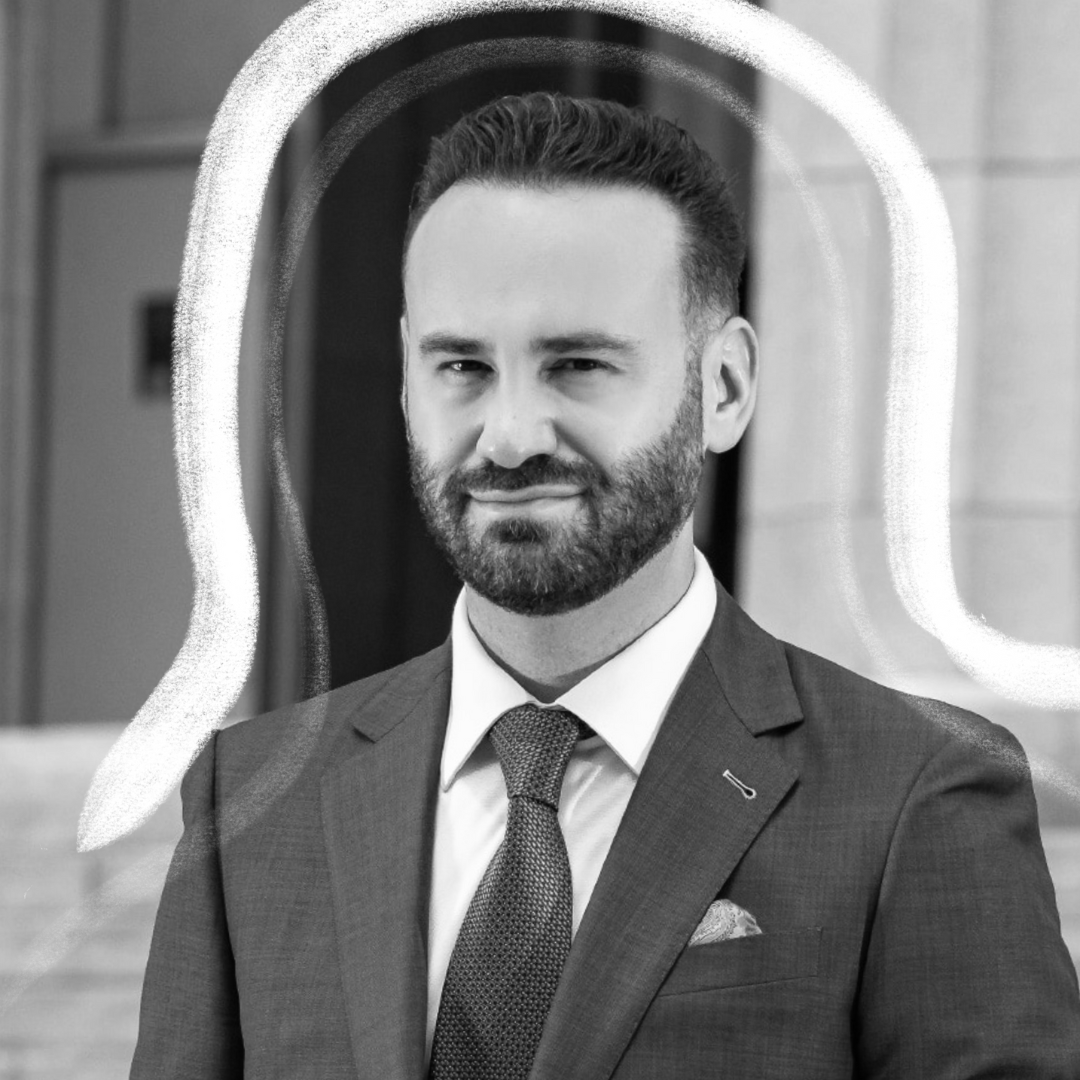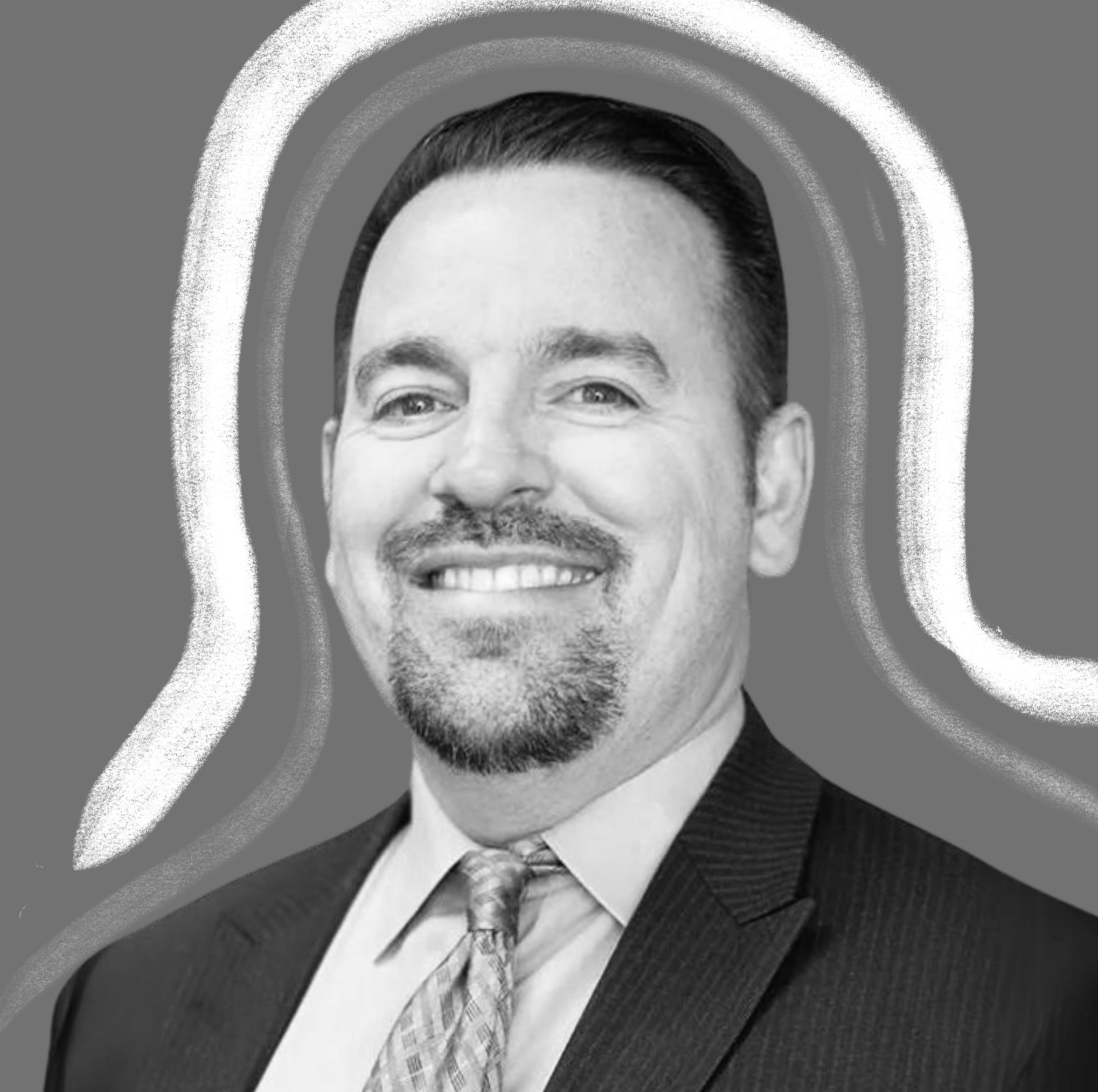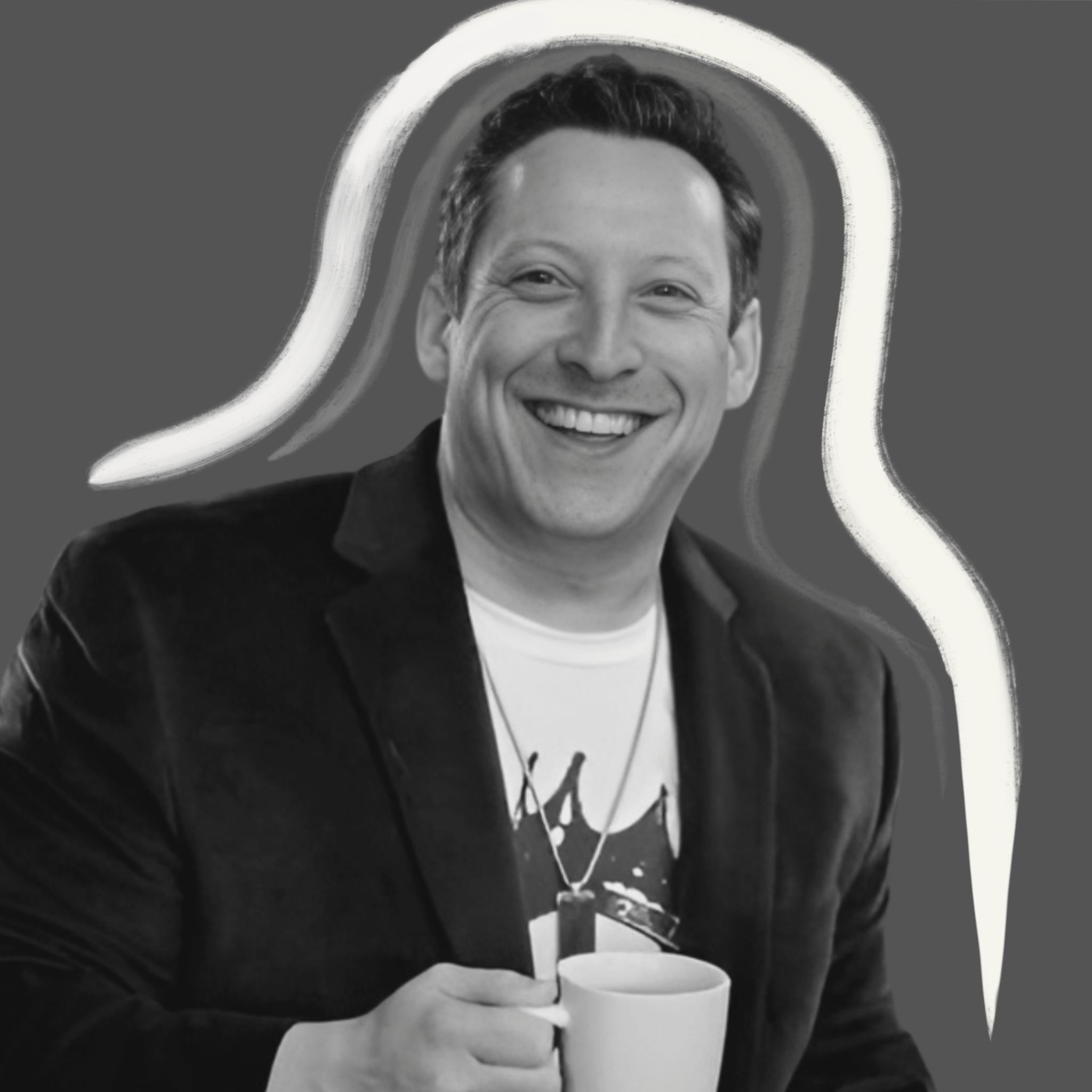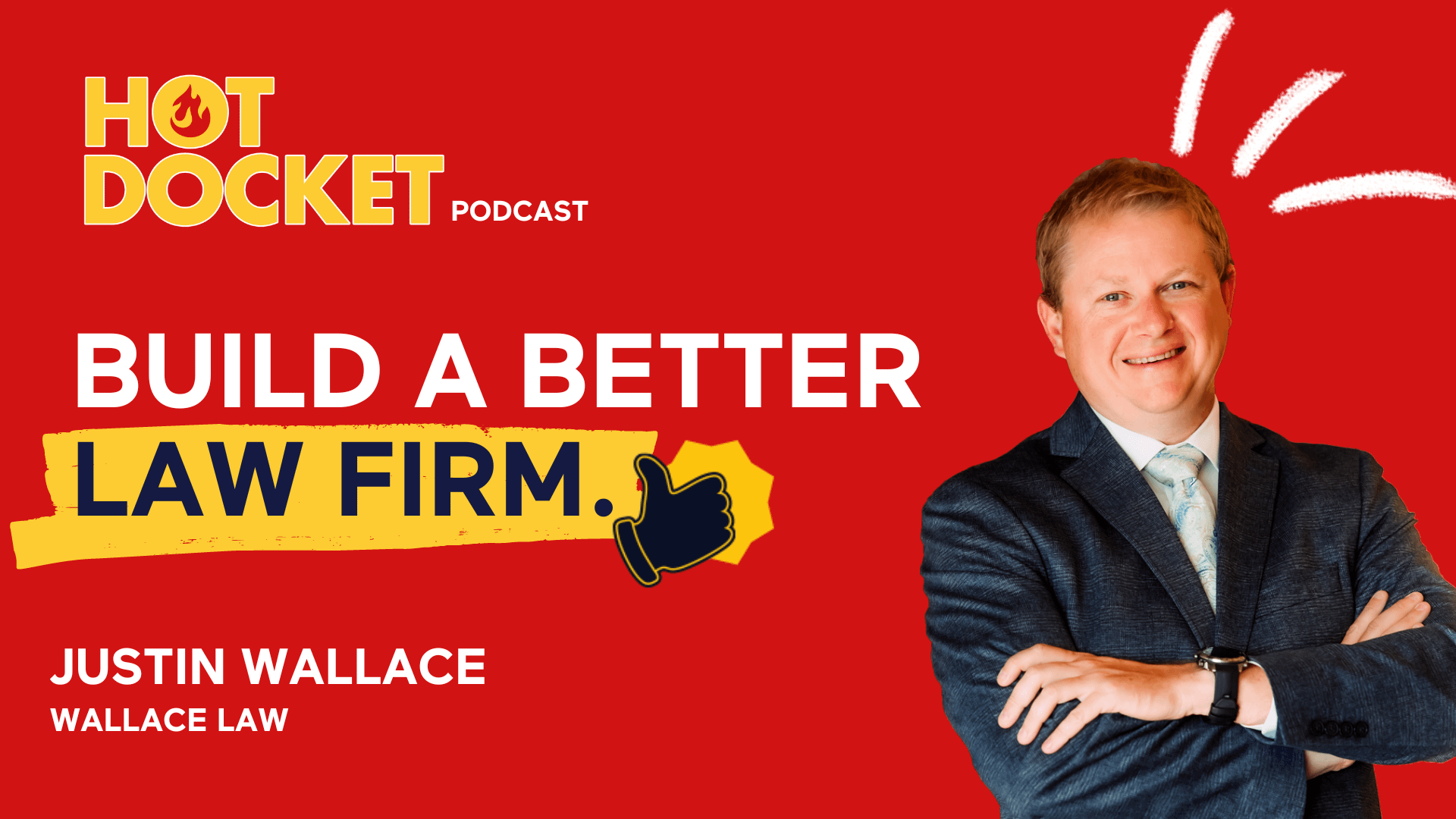
Episode Overview
Welcome back to another compelling episode of the Hot Docket Podcast! Our hosts, Bobby and Andrew are set to engage with a remarkable figure in the field of law, Attorney Justin Wallace – founder and president of Wallace Law. This episode promises an in-depth conversation with the lawyer who’s standing up to insurance companies and championing the rights of the underdog.
Listeners will be captivated by the story of Wallace’s bold departure from a previous firm, followed by the swift creation of his own practice, purpose-built to tackle unfair insurance practices and uphold justice for those with denied claims. The firm’s laser focus on this niche sets it apart in the competitive Wisconsin legal landscape, where Wallace Law has started to leave its indelible mark.
Bobby and Andrew explore the strategic initiatives that empower Wallace Law’s differentiation in the market, discussing the intricacies of targeting denied claims in health insurance, property, and life insurance.
Episode Links
Want to hear more from elite lawyers and industry-leading marketers?
Follow us on Social Media for more
Episode Topics
- Championing Justice: Justin Wallace’s advocacy for those battling unjust insurance practices
- Navigating the Legal Landscape: Wallace Law’s unique approach to insurance contract disputes
- Beyond the Norm: Finding your niche marketing strategy
- Crafting a Niche Strategy: Insights on launching a specialized practice with a focus on modern marketing
- Building Bridges: The power of networking and referrals in growing a specialized legal practice
Key Takeaways
- Explore how specializing in a niche area of law, can forge a compelling brand identity for your firm, setting it apart in the legal landscape.
- Uncover the vital role of credibility in becoming the go-to experts in a specific legal field, highlighting the impact on client trust and firm recognition.
- Learn how experimenting with diverse marketing strategies aligns with the adaptive nature of law firms, fostering innovation through successes and learning from missteps.
- Understand the critical importance of a robust digital presence for law firms. Discover why prioritizing online branding and marketing strategies is essential to remain relevant and competitive in the modern legal landscape.
Episode Transcript
[00:00:00] Andrew Nasrinpay
The best legal advice I’d ever received was to always
[00:00:07] Justin Wallace
pay your taxes.
[00:00:10] Bobby Steinbach
Welcome to Hot Docket, the show where we talk about winning marketing strategies that have built the most successful law firms.
[00:00:16] Andrew Nasrinpay
Join us every two weeks for the latest trends and tactics to grow your law firm.
[00:00:21] Bobby Steinbach
Hey, everybody, and welcome to Hot Docket Podcast.
[00:00:24] Bobby Steinbach
Today,
[00:00:24] Andrew Nasrinpay
we’re going to be talking to Justin Wallace, who specializes in first party insurance disputes.
[00:00:31] Bobby Steinbach
Let’s get cooking.
[00:00:33] Justin Wallace
Yes
[00:00:35] Andrew Nasrinpay
No, no, no. Yes
[00:00:41] Bobby Steinbach
Justin we’re really excited to have you. I’d love if you could just start by telling us a little bit more about your firm and Your practice.
[00:00:46] Justin Wallace
What do you guys do? Thanks Bobby. Yeah, so I started out after law school litigating on behalf of insurance companies And I did that for 12 years and became a partner at a firm that worked for insurance companies and about three years ago Decided to switch teams, so to speak, and what we do is we sue insurance companies when people aren’t being treated fairly by the insurance process.
[00:01:08] Justin Wallace
So most commonly that’s a claim that’s denied, you know, be it a health insurance claim, a property claim, a life insurance claim. Sometimes it relates to like an insurance agent and how they handled you when you came in and you gave them the information that they wanted and they wrote a policy for you.
[00:01:23] Justin Wallace
But generally speaking, we help people who aren’t being treated fairly by the
[00:01:27] Bobby Steinbach
insurance process. Yeah, so you’re one of the good lawyers.
[00:01:31] Justin Wallace
I wouldn’t go that far, but I’m, I’m one of the lawyers who helps people and I do, I feel like, uh, that is my goal is to take somebody who, you know, it’s daunting and one of the things that I hear, uh, over and over again is that, you know, while the insurance company, all they do is figure out whether or not insurance claims are covered and they figured mine out and they said it wasn’t covered and they sent me a note and it was nice note and they said it wasn’t covered.
[00:01:52] Justin Wallace
And, you know, who am I? I don’t know. I’ve never done this before. Like they, they know what they’re doing and, and I trust them. Um, and so, you know, it feels good to give those people a voice because, uh, I don’t agree with that. I’ve always been kind of a A fighter for the little guy and the idea that the powers that be would just kind of send you something that they want you to think is true and then it becomes truth because they say it.
[00:02:15] Justin Wallace
Uh, it, it’s a fun thing to fight
[00:02:17] Andrew Nasrinpay
against. Most of the firms we work with are personal injury firms and most of the advertising consumers see is for personal injury firms and when you say that you fight against insurance companies, a lot of people might hear that and put the two together. Do you want to tell us in a little more detail about how you’re different?
[00:02:35] Andrew Nasrinpay
Earlier you brought up that you go after home policies as well as health insurance claims, but it seems like you go after insurance companies for just about anything. Do you want to get into a little bit of detail?
[00:02:47] Justin Wallace
no, thanks for that opportunity, Andrew. I, uh, so yes, we are not a personal injury firm, so to speak, and I have a lot of really good friends who do a really good job.
[00:02:56] Justin Wallace
Handling personal injury cases, and so if you’re hurt in a situation that somebody else has caused, and you need a lawyer to sue the insurance company for the other person that was involved who was at fault for causing your injuries, uh, we have a lot of places we can help you with, but that’s not what we do.
[00:03:12] Justin Wallace
We usually sue your insurance company. That is to say, Uh, your insurance company entered into a contract with you that you paid for and they’re not living up to their end of the bargain. So, most of the personal injury cases you hear about are what’s called third party cases insofar as you’re suing an insurance company but you’re only really suing them because they insure the person who hurt you.
[00:03:34] Justin Wallace
Uh, what we do is we sue your insurance company who unfortunately is also hurting you sometimes. But you know, it’s a good, good way to bring up the importance of having Um, you know, strong partners when, when doing what I’m doing, because I’m doing something a little different than most people. And so, uh, it’s super important to me to work with a particular marketing firm like Meatpug that can specifically target the different areas of denied claims and that sort of thing, that I’m looking for.
[00:04:01] Justin Wallace
I’m, I’m not trying to participate in the giant market of, of personal injury law firms or personal injury marketing. I mean, you need a big budget to really be a player in, in that sort of field. And that’s just not what I do. So I try to separate myself from my friends who help people who are injured and who get them just compensation.
[00:04:19] Justin Wallace
But I’m more there to try to deal with situations like say a life insurance policy or your own healthcare plan that won’t pay your, your medical bills and that sort of thing.
[00:04:27] Bobby Steinbach
Yeah. So you talked about Carving out a niche and not trying to compete directly with personal injury firms, what have been some of those strategies that you’ve seen work and really like help carve yourself out so you’re not directly competing?
[00:04:39] Justin Wallace
You know, billboards are a common form of law firm advertisement, at least in Wisconsin, I’m sure, sure elsewhere as well. you drive down any highway and you see, you know, want to get the insurance company hire this injury law firm. And, and so I even got to the point where on my own personal Facebook page, I think with some assistance from you folks, we created a graphic that said, we are not a personal injury firm.
[00:05:03] Justin Wallace
Again, I have many friends who do this work and I have people who approach me a lot and say, Hey, I heard you sue insurance companies. I think that’s what I need. This insurance company is only offering the X and I will almost always send them over to one of my friends, but I can see where the confusion exists.
[00:05:16] Justin Wallace
And when we first entered this marketplace, you know, it’s, it’s a combination, both that the words, the, the going after the insurance company thing is kind of common to both personal injury and to what I do, but also because people have seen so many ads for injury lawyers. When they see another ad, they’re almost conditioned to think that it’s another ad for a personal injury lawyer because that’s all that they’ve seen and that’s the context that they’re giving it.
[00:05:39] Justin Wallace
So I try to come right out and say, you know, I’m, I’m different than an injury lawyer. I’m here for what your insurance company isn’t doing to justice.
[00:05:47] Bobby Steinbach
Yeah. That is a huge difference. And I think it’s like something that we’ve seen working with some of the personal injury law firms. They love billboards.
[00:05:57] Bobby Steinbach
They love to be ostentatious. It’s kind of refreshing in many ways to work with somebody who wants to be super targeted, find those customers where they are and. Almost like guerrilla marketing style.
[00:06:07] Justin Wallace
Yeah. And, and what I have some advantages in, in what I do in Wisconsin, this is not nearly as well developed a practice area as the personal injury cases are ever since probably 30, 40, 50 years ago, it’s become pretty clear to lawyers that you can make money if you sign up clients who.
[00:06:25] Justin Wallace
have a serious injury that was caused by somebody else’s negligence and you do so on a contingency fee. There are other law firms in my area, including one that a couple of my partners or former partners at the insurance firm operate that, you know, there’s, there’s maybe three of us who specialize in this stuff.
[00:06:40] Justin Wallace
Again, there are probably 10 or 20 firms in Wisconsin who have a Insurance bad faith or policy older side representation type, you know, tabs on their practice areas, homepage on their law firm. But this is all I do. There’s maybe two to three other lawyers in Wisconsin who also do only what I do. Our issue is not with competition like it is the personal injury side.
[00:07:05] Justin Wallace
Our issue is simply with reaching people. I think along the same lines as the way people conceptualize these advertisements, people know when they get injured. for some, by somebody else that they can call a lawyer because they’ve been told that 80 million times on television and in print and on billboards and that sort of thing.
[00:07:21] Justin Wallace
I think when people have, uh, denied insurance claim, sometimes they don’t even know what the starting ground is, and sometimes it’s not a lawyer necessarily. There are other individuals like public adjusters who help people who are struggling to get an insurance claim prepared. But yeah, I think that working in this, this specialized area has caused me to have to take a Many sorts of different marketing strategies and I can’t overemphasize the importance of having a partner who has really worked with me since day one and helped me put into place some of the ideas that I have because, you know, as you guys know, no lawyer actually needs a marketing company.
[00:07:57] Justin Wallace
We know everything. Um, you know, you know, I’ve been being sarcastic, of course, but like I’m able to, to, to The back and forth of feeding, uh, my sometimes crazy ideas and having them put into a plane of, of realism and actual marketing value, uh,
[00:08:13] Bobby Steinbach
is just amazing. Yeah. And you talked about a brand. I want to talk a little bit more about you starting your own firm and what that journey looked like.
[00:08:22] Bobby Steinbach
Can you walk us through what that looked like? How difficult was it? Do you recommend it for everyone? Kind of just tell us how that that’s been
[00:08:30] Justin Wallace
for you. Yeah. Um, no, thanks for the question. I, so it took me about 30 days from the final point of the decision to leave my last firm until the day Wallace Law opened.
[00:08:44] Justin Wallace
And that was chaotic. You know, luckily I, I left on good terms with my former partners. It became clear that I just needed my own business and my own shop. I had some specific ideas about how I want to run things and kind of what areas I wanted to get into. And I felt like I would be short selling myself if I at least didn’t give my ideas a chance.
[00:09:02] Justin Wallace
And you know, and if they fern out, I’ll, I’ll find another job somewhere. But so far we’ve had some relatively decent success, but I’ll tell you there, it’s, it’s somewhat daunting to kind of go from being a partner in, in a somewhat established place with a building to like. I’m going to just completely start from scratch, uh, starting with the financing.
[00:09:20] Justin Wallace
Uh, I gotta get a lot of credit from a bank and talk to bankers who I had some relationship with. I brought a fair number of my files with me. The people who were working with me at the prior firm really only knew me. And so that was a fairly easy transition, but it helped in terms of kind of initial startup to have some contingency CP files that were somewhat worked and getting close to the point of providing some actual income.
[00:09:44] Justin Wallace
Uh, to give some seed money to start the process. Obviously, in, in modern times, website, marketing, branding, um, if you’re doing this sort of work, I think, um, there’s no substitute for, um, you know, when I was working for insurance companies, it was a totally different ballgame, because we had 10 or 12 big companies who, when they got sued, they would call our office and say, hey, we have a new file, and that file would get assigned to a lawyer, and they’re, in fact, We were somewhat discouraged from doing anything that would, you know, rock the boat.
[00:10:14] Justin Wallace
Like, you have to assume that half of your claims adjusters are Democrats and half are Republicans. And so there is nothing you could say politically that would not cause you to lose half your clients. Um, you know, and so I had to kind of be very quiet and, um, you know, I didn’t have much of a public persona, but, you know, Trying to find people who have denied insurance claims or that sort of thing, and the personal injuries along the same lines, even the folks who do family law, have to be a little more, uh, gregarious and, you know, find marketing solutions to make sure that somebody’s going to pick up the phone and find you.
[00:10:46] Justin Wallace
It’s all those little details of probably 30 or 40 tasks to accomplish. But, you know, I’ve been a partner at a law firm since 2017. I’d effectively run a firm insofar as being one of the managers or partners there for a number of years and I was able to find some support staff early on, um, that was super helpful.
[00:11:06] Justin Wallace
You know, one piece of advice I would give somebody, you know, starting up from anew is you need to find at least one go to staff member who can take care of stuff. You know, I, I only have so much stamina, guys. I’m sure you’re kind of in the same boat. Like there’s, there’s only so much stuff that I am willing to take care of before I just, my, the battery’s drained and it’s not going to.
[00:11:28] Justin Wallace
It’s just not going to happen anymore. And so having somebody who can take some things off your plate, you know, in a paralegal sense, even somebody who’s worked in a law firm before and knows some of the details, I think is is immensely valuable too.
[00:11:39] Bobby Steinbach
Justin, in a year and a half, I have not seen you with a drained battery.
[00:11:43] Justin Wallace
Ha! Um, I, you know, one, one other thing that I would, I would emphasize to anybody starting a new practice is take your vacations. I take my vacations. I think it’s important. I think you need to get out of the office. You need to work to live and not vice versa. I try when I’m here and when I’m practicing and when I’m doing my job to be fully in it and fully committed to it.
[00:12:03] Justin Wallace
And I, I just don’t think there’s a human being on earth who can do that 52 weeks a year, five days a week. You need your time off and you need to recharge your battery because I’ve got, you know, a hundred or so of people’s kind of most important problems right now. And on a daily basis that. It does, it starts to um, wear you if you’re giving it the sort of attention and energy that it deserves, you know.
[00:12:25] Justin Wallace
Agreed.
[00:12:27] Andrew Nasrinpay
So, for other attorneys that are listening to this podcast and they hear about your case type, and they don’t have a referral relationship set up yet, is there any advice you could give them if they practice other areas like, let’s say they do family law or divorce or personal injury? And they have a potential plaintiff calling them for a first party issue and they want to find a good referral partner.
[00:12:53] Andrew Nasrinpay
Can you give us some tips and some common pitfalls that some of these cases run into and How they could basically do a better job in helping those folks who are calling?
[00:13:04] Justin Wallace
Uh, yeah, for sure. So, there are some of these disputes that I think a practitioner could take a look at and figure out and even sometimes start to solve on their own.
[00:13:13] Justin Wallace
I’d first advise anybody to try to get a copy of any denial letter from the client and try to get a copy of the full insurance policy so you can at least double check the basics of what’s going on here. But, I’d say from that point These cases become tricky to handle and I’ll give you an example is in Wisconsin, there’s a process that every Wisconsin insurer will go through when I file a bad faith lawsuit, they file a what’s called a motion to bifurcate and stay, which is they breach bifurcate the breach of contract claim from the bad faith claim, and then stay discovery on the bad faith claim pending the outcome of the breach of contract claim, which is pretty well established by Wisconsin case law, but isn’t that prevalent in other states?
[00:13:53] Justin Wallace
We know when lawyers come in from other states in our bad faith cases, and they don’t file that first motion that like, just needs to be filed. I did work for an insurance company. It’s a motion that you have to file as an insurance company. So we don’t see that. And it tips you off. You know, there are like in most practice areas, there Things that aren’t, there’s no checklist out there, it’s not written in a statute book, it’s not in any, specifically in any case that is really an outline, but that everybody who knows what they’re doing does, and helps their client, and kind of has to be done, and, and I think, really, if, if you’re a general practitioner, or, you know, you practice in other areas, and you get a call from somebody, I would get their denial letter and their policy, take a look at it, see what you think about the coverage situation, and you know, either run a letter to the carrier and see if you can’t maybe get some movement on your own, or start to find somebody who really focuses on this sort of thing, you know, my claims in my cases have different sizes too, and there are some, I have some cases over a 40, 000 policy that are probably worth 15, 000 because there’s a legitimate dispute there.
[00:14:56] Justin Wallace
And I have some cases over a 40, 000 policy that I’ve settled for 350, 000 because what the carrier did and what we were able to uncover in the process was so bad that it just made those two cases so egregious. You know, think, think about that when you, when you hear that, well, what is the size of the case?
[00:15:14] Justin Wallace
Well, that’s the size of the compensatory damages, but you know, is it, is your 40, 000 case worth 10, 000 or is it worth 350, 000? And, and most practitioners will probably owe it to their client to at least try to figure out which one of those two buckets that it falls into. So what I would look for in a referral source too, is somebody who’s worked for insurance companies before.
[00:15:36] Justin Wallace
I think that really helps my, uh, my practice. I’ve seen what the decision making process looks like, kind of how they think, how insurance companies, what kind of operationally, and even kind of philosophically, like how they approach different sorts of claims and different sorts of situations. So I would, I would try to find somebody like that and, you know, one thing that I, I tell everybody is that there aren’t a ton of people who do what I do.
[00:16:00] Justin Wallace
I get calls from people all over the country on a fairly regular basis to kind of ask about some of our practicers or that sort of thing. And oftentimes my job is to talk to people. I, you know, give me a call. I’m just a guy in Northeast Wisconsin who likes to yell at insurance companies. With
[00:16:16] Andrew Nasrinpay
that being said, what do you think your firm does best and what’s kind of driven your success?
[00:16:22] Justin Wallace
I know the difference between the insurance companies. There are good ones, and there are bad ones, and you gotta treat them differently. It’s worth talking to the good ones. It’s not worth talking to the bad ones. You know, if you get somebody who’s had three or four cases, you know, they’re not going to have necessarily the breadth of knowledge.
[00:16:37] Justin Wallace
Okay, well, you’re dealing with USAA, you’re dealing with State Farm, or you’ve got Travelers or Nationwide or something. Like here, I’ve seen this adjusted before. Here’s prior free case strategies that worked. I think you’ll lose all of that, uh, when you just don’t have the, the overall landscape. And I, I will say when you asked about personal injury law earlier, I don’t really dabble either.
[00:16:57] Justin Wallace
I think every young lawyer at one point in time did. But it’s a little dangerous to kind of get out of your comfort zone. You know, I think as you get older, your practice should narrow and not vice versa, and you get really good at what you do. And that’s kind of what we’ve done here at Wallace Law. I’ve brought in a couple of people with me now who are helping a lot.
[00:17:15] Justin Wallace
And I think that we. are good for those cases where what you really need is to know what this insurance company is trying to do with this denial letter and what their ultimate goal is and how you can kind of navigate yourself best. Sometimes you gotta yell and scream at them. Sometimes you gotta poke and prod them right.
[00:17:30] Justin Wallace
Sometimes you gotta send them the right statutes or send them a previous verdict that you got against them. But yeah, you lose kind of those nuances when you talk to somebody about first party claims who doesn’t do
[00:17:41] Bobby Steinbach
just this. Yeah, I think that’s a great point. Just understanding case types in and of itself is like a full time job.
[00:17:48] Bobby Steinbach
There’s just so much diversity in law and understanding everything is never going to happen. So what you mentioned, kind of that niching down, getting really good in one practice. I think that’s a really solid way to grow and think about your business
[00:18:02] Justin Wallace
overall. You know, the, the practice of sending somebody something that you’re not good at, it’s not like, Oh, I’m admitting defeat.
[00:18:08] Justin Wallace
I’m admitting that I’m not good at this. It’s like, you’re, you’re kind of doing part of the good of the system by getting these people to the person that they know. And simultaneously, you know, if you’re a young lawyer, one of the biggest tips I would give you is you’ve got to go out in the world and meet as many human beings as you can.
[00:18:24] Justin Wallace
Because one very valuable role in this legal industry. is to be the person that everybody is talking to about their legal problems. You know, you can do, you can go from there, and you can send them off to your friends. And you know what your friends are going to do? If they’re getting a bunch of referrals from you, they’re going to send your referrals back in the cases that you want.
[00:18:41] Justin Wallace
And so now all of a sudden, you know, just because you know a lot of people who call you first and say, hey, I need a lawyer, and for years you’ve probably given them free legal advice, now when they have a problem, you send their, uh, problem to a friend of yours who does good work and that friend sends you back a case that’s teed up for you that they got because now they’re motivated to work with you.
[00:18:58] Justin Wallace
So the, the referral practice I think is really, uh, you know, a lot of the money making side of the modern practice of law. You know, some lawyers are more referral fee heavy where they ask, you know, for 25 or 33 percent of the, of the fee. You know, my strategy has generally been I will Try to be as big of a referral recipient as possible.
[00:19:19] Justin Wallace
And I will try to send out as many cases to the people who send me cases as I can. It ends up being more symbiotic and fun. So think of it that way. When somebody tells you like, as a young lawyer, like, Hey, I need an expert in securities. And you’re like, well, I’ve tried a DUI case last month. You know, it’s like, just take that, think that as an opportunity to find somebody who’s really good at securities law, give them a call and say, Hey.
[00:19:41] Justin Wallace
Hey man, I got a referral for you. I know you don’t know me, but like I looked you up and you look really good. That’s something that that person will reciprocate. You do that enough times if you start to grow yourself a little business. I agree.
[00:19:52] Bobby Steinbach
I think that’s a really good way to look at the world and not try and be greedy for the sake of being greedy.
[00:19:57] Bobby Steinbach
Be a good lawyer, send referrals to the people who are good at what they do, and over time, you’re gonna get the returns, you’re gonna garner returns, so.
[00:20:06] Justin Wallace
It’s like, you know, even if they’re family members, like, Don’t be pretentious about it. Like, take five or ten minutes and see if you can talk through the person’s problem.
[00:20:14] Justin Wallace
Like, yes, you might not be able to help them, yes, everything, but like, start to get people in the habit of bringing their legal problems to you. Like, start to, like, build that, like, training mechanism in yourself where I’m trying to condition everybody I talk to to have confidence that I’m a good lawyer and I’m a good human being and to want to send me files, to trust me, to get conditioned to, oh, I’ve got a legal problem, oh, I’ll call Justin.
[00:20:38] Justin Wallace
And, um, and then, you know, it takes practice and you have to start thinking, again, about people in the world less as, Oh, I’ve got this degree and they’re trying to kind of steal my products for free and more as like, they’re giving you an opportunity to show that you’re not an idiot and maybe if they have something serious in their future that they may want, be willing to trust you with it.
[00:21:00] Bobby Steinbach
Right, exactly. Justin, I want to go back to something you mentioned earlier. You were talking about separating the big cases from the small cases. I think everybody who’s listening would love if there was just a magic ticket to unlocking the big cases, right? If all they could get was the big cases, they’d love that.
[00:21:16] Bobby Steinbach
What’s been for you a successful mechanism for generating those big cases? Have you found any secret insights that you can share where you’ve said, this has been a great referral source for big cases, whereas this other source, I’m only getting small. I know that’s not always easy to do. Any insight you could share in kind of that separation?
[00:21:35] Justin Wallace
Yeah, I would say that my, the most significant referrals that I get still come from other lawyers who I know. Um, I would say, you know, it’s probably down to 60 percent or so of our business is people who I’ve worked with in the past. Uh, you know, I’ve got one of my, my, uh, good friends in the business is a consumer protection lawyer.
[00:21:55] Justin Wallace
And we actually became buddies when He was a plaintiff and I had an insurance company on a case and we, we ended up, uh, making friends because I, I liked his style and everything. But more and more, long term care stuff has been really picking up with some great success based on some of the work that NeatPug’s been doing.
[00:22:10] Justin Wallace
I just settled a case, um, well into the 60 years that we got on a, a long term care denial just through our website. Uh, and so I think that that’s, Kind of our, our key in the marketing is the more specific thing we go after, the more success we, we seem to have with it, which, which makes a lot of sense because, you know, a lot of times we’re plowing new ground here, uh, right where, I mean, how many clients in your guys history have came to you and said, Hey, how many long term care insurance coverage denials can you get me?
[00:22:38] Justin Wallace
Zero.
[00:22:42] Justin Wallace
But so we know we’re doing we’re plowing the ground together and those and it’s starting to work more and more consistently. And, you know, that’s, you know, one of the things that I’ve been thinking about a fair bit over the last year and three months is like, what does it mean to be a law business owner?
[00:22:56] Justin Wallace
Yeah, as opposed to being like a grunt. Worker or litigator, which I did for a long time and I can do, but what does it mean to be a business owner? And to me, what that’s starting to turn into is I see a lot of trends and what I need to do is be the guy at the top who is locating the trends and figuring out where we’re making money on the, the different cases we’re seeing, or if we get one good case in it, we sell it.
[00:23:17] Justin Wallace
And then another one that looks similar comes in and we settle up for even more. And then. A third one comes in and it’s like, you know, maybe, maybe we got something over here, uh, and we should start trying to target those people and trying to encourage more of them, either, uh, statewide, uh, midwestern, uh, national basis to contact our office.
[00:23:33] Justin Wallace
I think that part of my, my process has been how, how can I target. The, the specific kind of niche ideas that I’ve got. And so I need a marketing partner, frankly, that can, can do that for me. I, that, that’s something I haven’t have no, I wouldn’t even know that I have that ability, frankly, when I started this business, like when I started this, it was mostly me and my referral sources and a couple of.
[00:23:58] Justin Wallace
Uh, public adjuster who called in some other, you know, insurance industry people, but you know, the power to be able to identify trends and then, you know, trying to target people specifically in those trains that are making me money. Honestly, that’s the word that comes to mind is powerful. Like it’s a strong way to be able to run the sort of business that I’m trying to run.
[00:24:19] Bobby Steinbach
Yeah, I think you’ve always been a really strong partner at pointing us in the right direction, giving us guidance on those trends, and then kind of saying go. That’s something I think all listeners could probably kind of take away is even though your marketing partner is there to do their job and get you more cases, the more information you can provide, the more guidance you can give is just going to be like firepower to add to the toolkit.
[00:24:41] Bobby Steinbach
So something to take away.
[00:24:44] Justin Wallace
Yeah, agreed. And, and that’s, you guys had been pretty amazing. It, you know, there are going to be things that don’t work and I, and I’m okay with that, right? Like, you know, sometimes, you know, you throw five or 10, 000 at a marketing effort and then you’re just not making money off the cases that come in.
[00:24:58] Justin Wallace
Like that’s life, you know, that’s, that’s every business. And I’d rather. Strike out nine times and just hit a total motherlode once, then not try at all, you know, and we try a lot of stuff, like it’s been super enjoyable and super profitable and I appreciate that side of the business because that’s something I’d always be able to, not always be able to, but I can generally identify the trends, but I don’t know that I know what to do with them from that point.
[00:25:21] Andrew Nasrinpay
Yep, it’s super interesting too, having worked with you on a couple of these projects, different strategies work very differently for each one, because the consumer journey is different. Sometimes it’s as simple as putting a page up and getting the SEO traffic, because it’s something that consumers are searching out.
[00:25:40] Andrew Nasrinpay
Other times, people don’t even know that what is happening to them is something that they could do something about, and you have to get in front of their eyes before they seek things out. So, it has been very interesting, and as a business owner, I’m sure that That allows you to grow and learn a lot because the business side of all of these is very different on each side, just like the legal side might be different as well in the process.
[00:26:05] Andrew Nasrinpay
You have to build around it.
[00:26:07] Justin Wallace
Yeah, you know, and it, that goes part and parcel with trying to plow new ground. You know, I truly believe that’s the, the way to, to find success in the law business is, you know, they’re, uh, as opposed to doing this, you know, being a divorce lawyer, being a business lawyer, doing the same things other people do.
[00:26:24] Justin Wallace
If you can find that area that just needs it, that nobody’s found before, that, that these people need lawyers. They have no idea they need lawyers. These cases are fairly substantial. These insurance companies are paying on them. You know, you can do pretty well for yourself and that’s, that’s how I like to operate, you know, and so I’m glad that you guys enjoy it too, because it’s, it’s, obviously it’s different.
[00:26:42] Justin Wallace
I know. I’m sure you have some clients who ask you to put them into the stream of X, you know, and this is entirely different. This is trying to figure out what’s going to appeal to person Y, as opposed to just jumping on the well known and researched and proven bandwagon. You know, how many times have we asked ourselves the question, what is somebody with a denied insurance claim?
[00:27:04] Justin Wallace
You know, like I, and I, I still, I’ve thought about that question for four years, nonstop. And I still don’t think I know the answer, but it’s, you know, those are the fun conceptual problems to work through.
[00:27:18] Bobby Steinbach
And like you said, I don’t think that that’s like a dream situation for every marketer. I think there’s a mindset you have to have going into that where you kind of know what you don’t know, right.
[00:27:29] Bobby Steinbach
Or you don’t know what you don’t know. And a huge part of this is just the discovery process and learning. Which is great.
[00:27:35] Justin Wallace
Which is great. And you know, I, I had another, um, client lawyer asked me about my website today and I’ll point it over to you guys. You may end up spurning a denied insurance preference, uh, marketing.
[00:27:48] Justin Wallace
An empire. An empire, that’s right. Cause once you’ve done it once, you know, it’ll be a little easier the next time, hopefully. Hopefully.
[00:27:55] Bobby Steinbach
So Justin, I want to, um, just kind of close out over here with a little game that we put together here. It’s going to be a complete this sentence game. We’ll go back and forth and there’ll be, I’ll tell you when it’s blank.
[00:28:07] Bobby Steinbach
You put the blank the same way as every other complete this sentence game
[00:28:12] Justin Wallace
works. And then like kind of the first thing that comes to my head, like just spit it out kind of deal. Uh huh. Pretty much.
[00:28:17] Bobby Steinbach
Some of them you might have to think for a second, but that’s fine. Um, okay. I’ll do the first one. The most important quality in a good lawyer is
[00:28:27] Justin Wallace
Passion. You gotta care. I can train people to do stuff and how to litigate cases and stuff, but if you don’t care, you don’t care. The
[00:28:37] Andrew Nasrinpay
best legal advice I’d ever received was to always,
[00:28:41] Justin Wallace
um, pay your taxes. That’s a great answer.
[00:28:53] Bobby Steinbach
Okay, next one. If I weren’t a lawyer, I would probably be a blank.
[00:28:59] Justin Wallace
Statistician, mathematician of some sort, probably.
[00:29:02] Justin Wallace
I was a math kid growing up. I was on that path for a while.
[00:29:08] Andrew Nasrinpay
If you have a first party insurance dispute, who do you
[00:29:11] Justin Wallace
call? Wallace Law, baby.
[00:29:14] Bobby Steinbach
So thanks for joining us, Justin. This has been a great show. We’ve really enjoyed talking to you. And as always, you know, we love having you as a client.
[00:29:23] Bobby Steinbach
You’re always eager to learn. We recommend anybody who has any questions about their claims, if you’ve been denied, if you’ve been low balled. Obviously, Justin’s your guy, uh, Wallace Insurance Law, and again, if you’re an attorney and you’re looking for somebody to send those cases to, you don’t handle them, Justin’s your guy.
[00:29:40] Bobby Steinbach
He, he really knows his stuff and I couldn’t recommend him more.
[00:29:43] Justin Wallace
Thanks guys, appreciate it. I’ve said enough about MeanPug, I think, but it’s been a pleasure working with you guys. It’s been a year and three months. We’re killing it. Thanks, Justin. Take care, guys.
[00:29:54] Bobby Steinbach
We hope you’ve enjoyed this episode of Hot Docket.
[00:29:57] Bobby Steinbach
We’re your hosts, Bobby and Andrew, founders of MeanPug, the marketing agency for ambitious law firms.
[00:30:02] Andrew Nasrinpay
Have questions about marketing or anything we covered today? Email us at bark@MeanPug.com. Be sure to subscribe to learn more.




